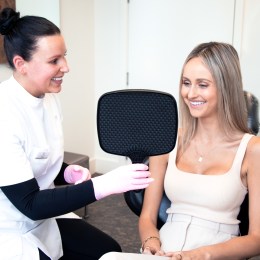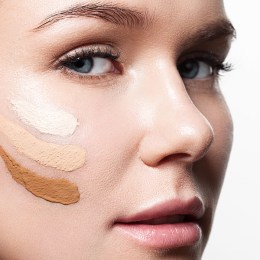The Cosmetic Physicians College of Australasia (CPCA) has issued a warning to Australians about the dangers of purchasing cosmetic injectable substances over the internet after uncovering a number of websites offering Schedule 4 (prescription-only) substances such as botulinum toxin and dermal fillers direct to consumers.
Consumers in Australia have long benefited from a safe and regulated system of medication monitoring and perhaps, rather naively, believe that products purchased over the internet are of the same standard as medication from legitimate Australian sources.
In reality, members of the public who buy Schedule 4 substances over the internet are faced with the risk of an extremely poor aesthetic result, painful reactions to a foreign substance and the development of life-threatening infections.
“The general public should be aware that the substance they intend to purchase online may not be sterile (with the potential to cause difficult-to-treat infections); or worse, may be a toxic blend of something unidentifiable, leading to longer-term illness, scarring and disfigurement,” says spokesperson for the CPCA, Dr Mary Dingley.
“Legitimate medications can be sourced only from an appropriately registered medical practitioner.
“A person cannot guarantee the substance advertised is in fact botulinum toxin from a legitimate source. In fact, every pharmaceutical company operating in Australia registers its medicines with the Therapeutic Goods Administration and never sells medicines online.
“This alone should alert people to the fact that they cannot purchase such products from a legitimate source online.”
In Australia, cosmetic medicines such as botulinum toxin (eg. Botox) and dermal fillers (eg. Restalyne, Juvederm) are prescription-only medicines, meaning that an appropriately registered doctor needs to prescribe the medication for the patient after a medical history has been taken, and the patient is examined.
“The CPCA has for many years now been calling for stronger regulations for a range of cosmetic medicine treatments and, in early September, welcomed the announcement that the NSW government will review regulations for beauty clinics and wrote to the Federal and each State and Territory Minister for Health to request that all aspects of cosmetic medicine form part of the review,” says Dr Dingley.
“The CPCA has also alerted the Therapeutic Goods Administration (TGA) to the existence of websites offering Schedule 4 substances and asked it to inform Australian Customs to intercept and destroy packages that can be identified as being sourced via such companies.
“Cosmetic medicine is a three dimensional skill, requiring a full and detailed one-on-one consultation by a medical practitioner who possesses suitable expertise in patient psychology, as well as medical conditions and comorbidity, which can affect patient management.
“Individuals should also be aware that purchasing such alleged medicines from international websites, and importing them into Australia, may also be an illegal act.
“Patients interested in finding a qualified doctor with an interest in non-invasive cosmetic medicine can visit www.cpca.net.au,”
ABOUT CPCA
The Cosmetic Physicians College of Australasia represents the largest body of doctors who perform non- or minimally-invasive cosmetic medical treatments in Australia. The CPCA’s objectives include developing and maintaining high standards of learning, skills and conduct in cosmetic medicine to help safeguard the public. The CPCA will also support public education and awareness of the benefits of cosmetic medicine.




